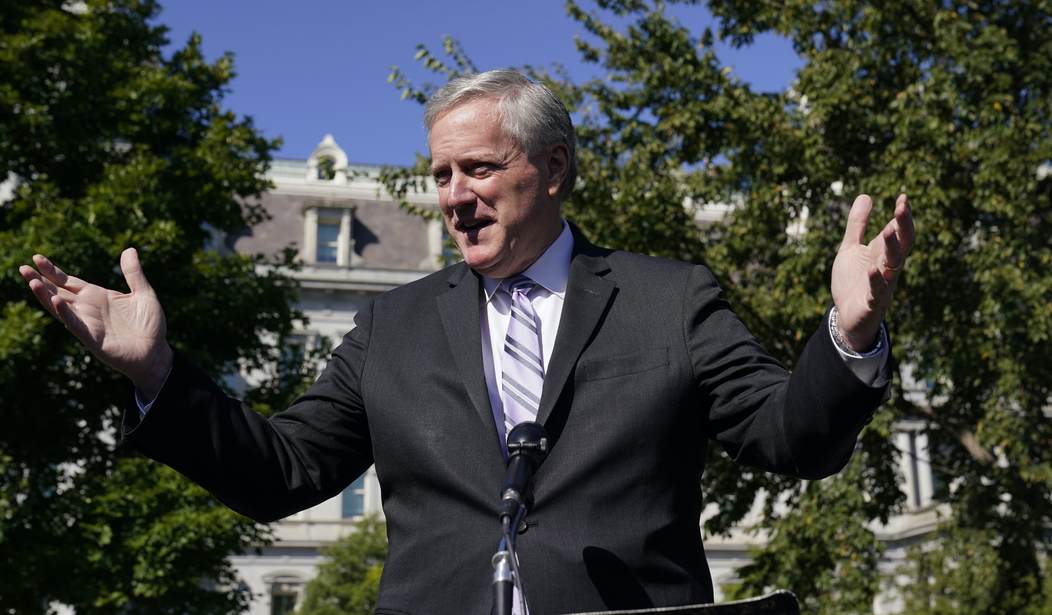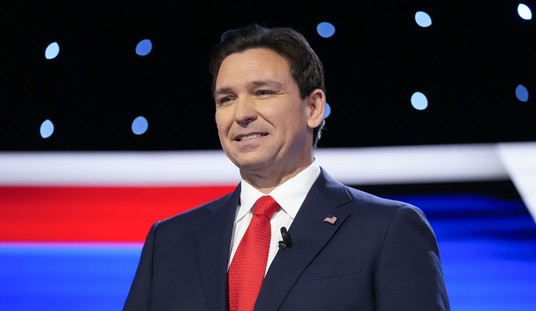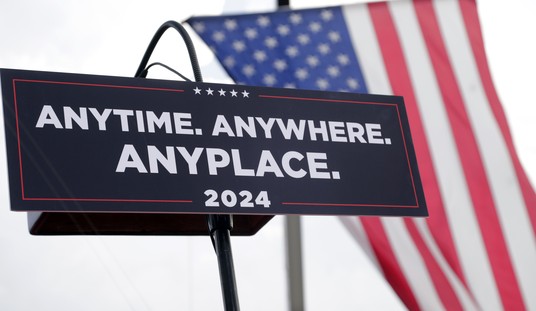Fani Willis might have planned to try Donald Trump and eighteen others in a Fulton County state court. She may have instead created a federal case, and Mark Meadows quickly led the way to forcing the change. Trump’s former chief of staff filed a motion yesterday to stop any proceedings currently under way in Georgia’s state courts and applied for removal:
“Nothing Mr. Meadows is alleged in the indictment to have done is criminal per se: arranging Oval Office meetings, contacting state officials on the President’s behalf, visiting a state government building, and setting up a phone call for the President,” Terwilliger wrote in a 14-page filing with the U.S. District Court for the Northern District of Georgia on Tuesday evening, saying these are expected from his role.
Meadows met with Georgia secretary of state chief investigator Frances Watson in Cobb County to discuss an ongoing audit of signature matches, according to the 98-page indictment. He was charged under the state’s Racketeer Influenced and Corrupt Organizations Act in the 41-count indictment.
“This is precisely the kind of state interference in a federal official’s duties that the Supremacy Clause of the U.S. Constitution prohibits, and that the removal statute shields against,” Terwilliger wrote, saying the law states he wouldn’t be liable to answer in a state court.
The removal statute (28 USC 1442) offers this as an option for federal officers sued or indicted in state courts for actions taken as part of their official duties:
(a)A civil action or criminal prosecution that is commenced in a State court and that is against or directed to any of the following may be removed by them to the district court of the United States for the district and division embracing the place wherein it is pending:
(1)The United States or any agency thereof or any officer (or any person acting under that officer) of the United States or of any agency thereof, in an official or individual capacity, for or relating to any act under color of such office or on account of any right, title or authority claimed under any Act of Congress for the apprehension or punishment of criminals or the collection of the revenue.
Emphasis mine. The legal concept in play is that the federal government alone has jurisdiction over federal employees while they perform the duties of their offices. The political intent of Congress with this statute is to prevent states from using the courts to settle political disputes with the federal government, essentially disincentivizing such lawfare as pointless.
Does this apply to Meadows? Terwilliger certainly seems to have an arguable point. Meadows faces two counts in the indictment — one for the RICO predicate and a separate count “solicitation of violation of oath by public officer” (count 28). The RICO predicate repeatedly cites acts by Meadows which are not crimes in themselves, but are acts that allegedly served the overall illegal enterprise. All of those appear to be tasks that Meadows would do as part of his White House job.
The potential fly in the removal ointment is count 28. That count alleges that both Meadows and Trump tried to get Georgia Secretary of State Brad Raffensperger to violate his oath “by unlawfully altering, unlawfully adjusting, and otherwise unlawfully influencing the certified returns for presidential electors for the November 3 , 2020” in ‘The Call’ on January 2, 2021.
Much would depend on Raffensperger’s testimony in this regard; if all Meadows did was set up the call, then Terwilliger would have solid grounds for removal. If Meadows himself “importuned” Raffensperger to take actions to falsely change or decertify valid election results, that might make removal a tougher issue for Meadows and Terwilliger. They would have to argue in federal court that Meadows was acting in a legitimate task for his federal office as Trump’s chief of staff, rather than as a de facto campaign official. That might be a close enough shave to “under color of such office,” but it wouldn’t be a slam dunk.
This does, though, show that removal may not be an option for Trump or others named in the indictment. Jeffrey Clark, a former assistant Attorney General, probably has a good chance of using the same strategy Meadows is employing. As William Jacobson wrote last night, though, it won’t apply easily to Trump, and it won’t to anyone else at all:
Trump may have a more difficult time removing the case since he was a political candidate and his conduct was not as president. But as the Meadows Notice demonstrates, there is a fairly low bar to removal and any “plausible” claim that the conduct charged was in the context of an official federal capacity should suffice. Other defendants who were not serving in any federal capacity at the time would not be able to invoke the statute.
The phrase “under color of such office” looms large here. Trump’s attempted interventions had nothing to do with the presidency, which has no authority or jurisdiction in state elections. Trump acted in those instances as a candidate for office, not under color of the office, and that *likely* would end any removal motion. Trump is almost certain to try, though, and it will be interesting to see what argument his attorney can make for it. The other sixteen co-defendants didn’t have jobs in the federal government, so removal is a moot point for them.
So what happens if Meadows (and Clark) win removal motions? Willis could opt to sever those defendants from Trump and the others and pursue two trials, one supposes. However, Willis would likely just pursue the state case while letting the federal case drag on for a while. She wants Trump, not Meadows and Clark, both of whom only face two counts in the 41-count indictment. If Trump somehow won a removal motion, Willis might have to decide whether she could win under federal rules — not a given by any means — and whether it would make sense to move the whole case into federal court.
Either way, one thing is certain: this isn’t coming to trial in six months. Alan Dershowitz agrees, and accuses Willis of grandstanding and worse:
The Georgia prosecutor who indicted Donald Trump and 18 co-defendants – yes, she indicted them, the grand jury merely rubber-stamped – has said she will try to bring the case to trial within six months. I have been practicing criminal law for 60 years, I have never seen a trial with 19 defendants, a 90-plus page indictment and this degree of complexity brought to trial in anywhere close to six months. It simply can’t happen.
Why then did she begin this case, which is about lying, by misleading the American people? Because to her, this case seems entirely political. Is she using it to run for office, or is she bringing it to garner favor with other Democrats?
Probably both, although that’s not much different than what other DAs calculate in big cases, either. That doesn’t mean that the defendants don’t face real legal risks.








Join the conversation as a VIP Member